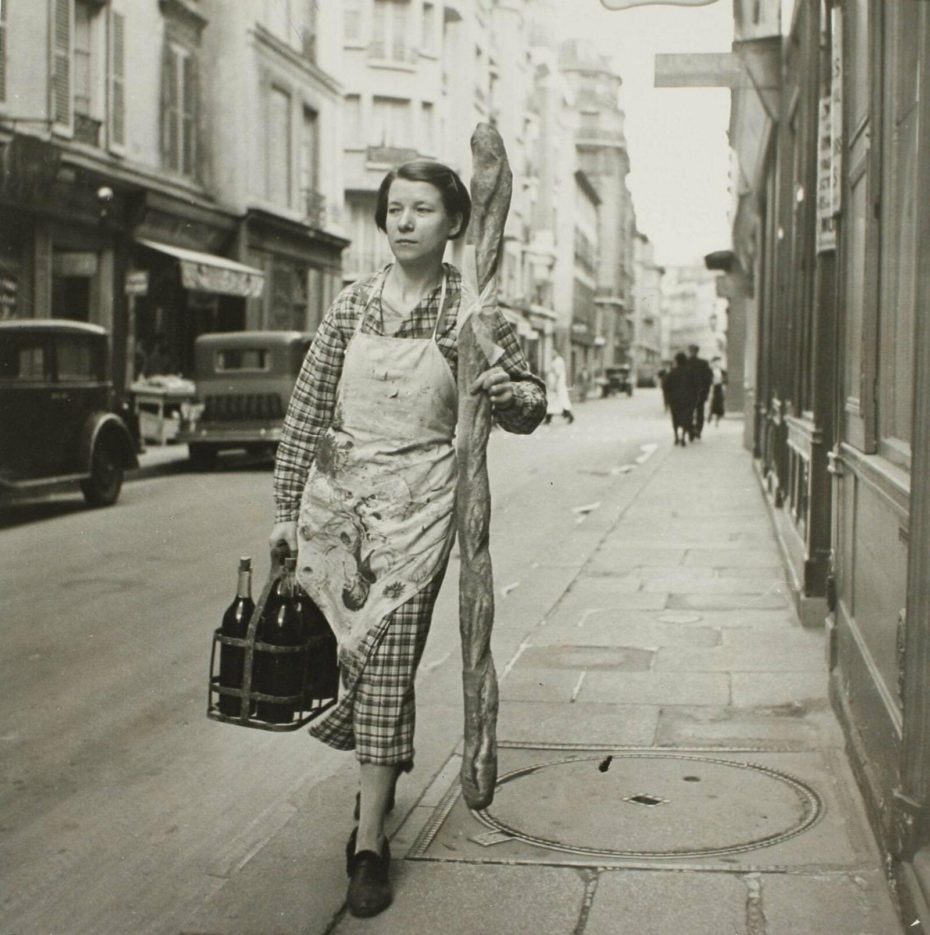
The room was stifling in August of 1942 when the four girls were closed in. Not a window or door, just a single toilet, a slop sink, and the hole in the floor above the boulangerie where Martine Dubois produced the 6 foot long baguettes, easily passed up through that 6 inch hole in the ceiling. The baguettes without which Marie, Alice, Marguerite, and Gîte would certainly have starved; filled with bits of scrap meat, potato, medicine and even occasionally wilted cabbage baked right in. Four Jewish girls hiding from the Milice française, the Gestapo, the prying eyes of informers and certain death, if discovered. Their hopes of ever being free again depended entirely upon the bravery and sacrifice of the woman in the bakery below them.
Martine Dubois, whose brother had only 6 months ago, been tortured and shot by the Gestapo for distributing anti Nazi leaflets near the Sorbonne, was now more than ever motivated to rid her country of the evil that gripped its people. It was without thought or reservation that Martine decided to hide the four frightened girls when they suddenly appeared one evening huddled soaking wet and starving in the shed beside the boulangerie. Their families were by now in concentration camps and the only way to make sure the girls were not discovered was to hide them into the old custodian’s room on the floor above the baking room. The space would have to be of solid brick as to not arouse the suspicion of the Milice or the Germans as they banged their rifle butts to ferret out hollow cavities in the walls on their routine searches.
Haupt Frédéric Weidlich looked forward each day to the fabulous delicacies awaiting him in Martine’s boulangerie. But what began as a self indulgent appetite for pastries was soon replaced by an even more rapacious appetite for Martine herself and on each subsequent visit, Haupt Frédéric Weidlich became more and more determined to have her too.
Martine loathed every moment she spent with Frederic, but four girls needed far more food than Martine’s weekly ration card could provide and flour was getting harder and harder to find. So it was with a resignation of desperate circumstances that Martine Dubois sacrificed her dignity and pride to feed and shelter four Jewish girls living above her boulangerie.
But his price in intimacy and open affection didn’t go unnoticed by neighbours. Customers, fellow shopkeepers and even some of her closest friends began to avoid her on the street. She knew full well, however, they were calling her a horizontal collaborator, but the girls remained safe and the baguettes continued to rise through the floor.
On June 19th, 1944 Frederic was gone and the battle for Paris began. A week later it was over. Paris was once again free, but for the girls upstairs, who had been in hiding for two years, their world was changed forever. Martine tore down the brick wall and every night for a week, they hugged and cried and then hugged and cried some more.
Then it happened. As Martine was closing up the shop one night, she was approached by several women who began to drag her into the street. Their shouts of collaborator, spy, Nazi, whore and worse stung Martine’s brain as she was beaten and held down in the gutter while they shaved her head.
Today, her hair has begun to grow back nicely and she is at least alive and thankful to be able to deliver her life-saving baguette, now stuffed with the finest ham and cheese along with plenty of wine, to Marie, Alice, Marguerite, and Gîte. It has been a year since Paris was liberated and they will enjoy this annual feast together for many more years to come, remembering the secrets they kept above the boulangerie.

